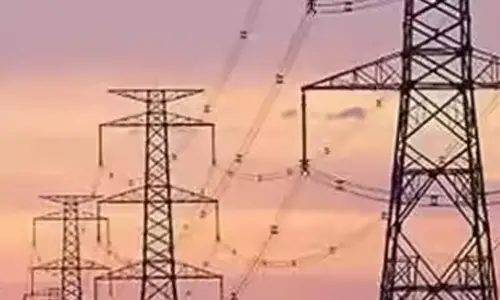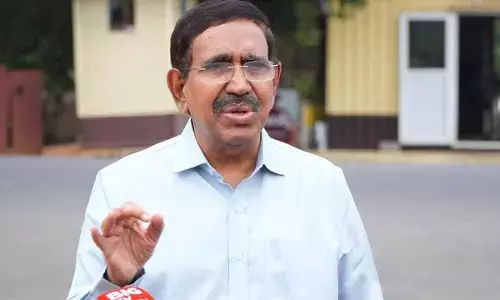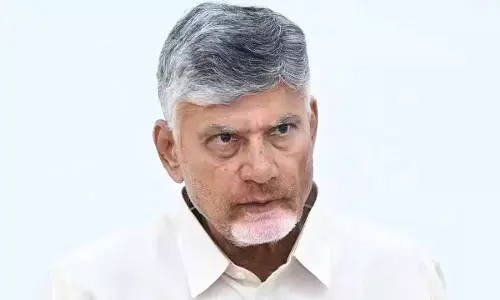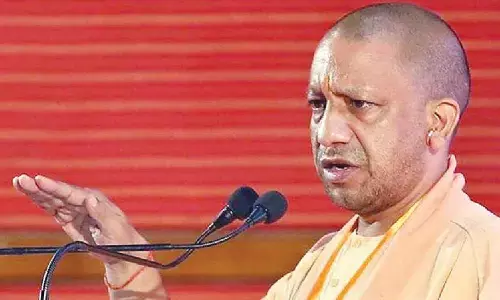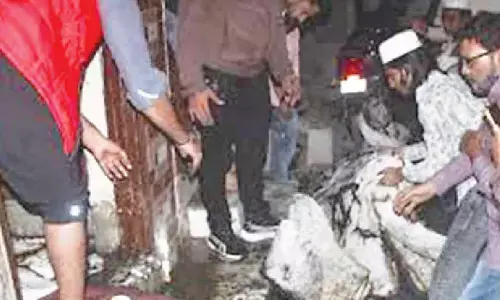Thirty years on, Bhopal's ghost still haunts the nation

Thirty years on, Bhopal\'s ghost still haunts the nation, Even after three decades, the memory of the 1984 Bhopal gas disaster is kept alive by \"mini Bhopals\" that occur across India.
Even after three decades, the memory of the 1984 Bhopal gas disaster is kept alive by "mini Bhopals" that occur across India.
Three took place in June, barely a month after Narendra Modi formed the government: a gas explosion in the Bhilai steel plant killed six and injured 30; a pipeline blast near Nagaram village in Andhra Pradesh killed 17 and a gas leak at a state-run plant in Kollam in Kerala sent 130 children to hospital. And on November 19, a blow-out of an oil well spread panic in Santhol village in Gujarat.

According to the National Disaster Management Authority (NDMA), there are 1,861 "major accident hazard" units across the country, not counting unorganized sectors dealing with a range of hazardous material. It says 130 "significant chemical accidents" were reported in India during 1999-2009, and 20 in the last four years.
Recurring industrial accidents point to systemic failure of the safety regime that came up post-Bhopal, says Satinath Sarangi of Sambhavna Trust in Bhopal that fights for the rights of the Bhopal survivors who still suffer from the effects of the toxic gas.
The Environment Protection Act, the Disaster Management Act and the rules framed for manufacture, storage and import of hazardous chemicals and management of hazardous wastes were all positive steps, he says. "However their impact have been minimal due to inadequate or faulty implementation," Sarangi said.
That may explain how in 2001 steel contaminated with heavy metals and hazardous asbestos from the ruins of the World Trade Centre reached India, although the impact, however, was not altogether zero.

In 2006, authorities stopped a French ship carrying hazardous asbestos wastes from being dismantled at Alang in Gujarat.
The same year, Unilever was asked to shut down its thermometer manufacturing factory at Kodaikanal in Tamil Nadu after it was found dumping toxic mercury waste at the site. More recently, the Tamil Nadu government withdrew permission to Gas Authority of India for laying gas pipeline across farmers' fields.
But Bhopal survivors are still fighting for justice.
Sarangi demands Dow Chemicals, which owns Union Carbide, to clean up contaminated soil and ground water around the abandoned pesticide factory and respond to the Bhopal District Court's summons to appear in the ongoing criminal case.
Bhopal was a wake-up call. But is India fully awake to handle time bombs ticking elsewhere?
By 2020, India will lay about 33,000 km of gas pipeline-with some passing through thickly populated areas-requiring strict safety standards, cautions Gopal Krishna of Toxics Watch Alliance, an NGO.
The rapid growth of the pharmaceutical industry has raised the risk of contaminating surface and groundwater with residual pharmaceuticals, warn greens.
According to NDMA, India is vulnerable to emergencies of biological as well as nuclear origin.
The proposed world's largest nuclear plant at Jaitapur in Maharashtra is only 10 km from a geological fault capable of generating 6.5 magnitude quake, says Vinod Gaur, a renowned seismologist in Bengaluru.
India has two "level-4" high security bio-safety laboratories in Pune and Bhopal.
"Pathogens have escaped from such laboratories of the US and Russia," says Kalyan Banerjee, a former director of the National Institute of Virology in Pune.
"These laboratories require absolute discipline and faultless maintenance. These are almost impossible to implement in India. Therefore the chances of escape of pathogens are pretty high in India," Banerjee explained.
"We have sufficient reason to believe that the possibility of recurrence of the Bhopal disaster is much more heightened now than in 1984," adds Sarangi.
The import and local production of hazardous chemicals today are many times higher than before while their regulation is more lax.
Risk of accidents has increased, Sarangi says, with the government promoting "Petrochemicals Investment Regions," each of 250 sq km area, along the lines of Special Economic Zones.
Most potential "mini Bhopals" are in industrial estates around large cities or in backward areas.
"Thus, Vapi and Ankleshwar in Gujarat, Taloja and Lote Parasuram in Maharshtra, and Cuddalore and Mettur in Tamil Nadu are places where locals and the environment are subjected to massive toxic assault. We have to see what kind of safety measures the new government will enact," Srangi opines.



